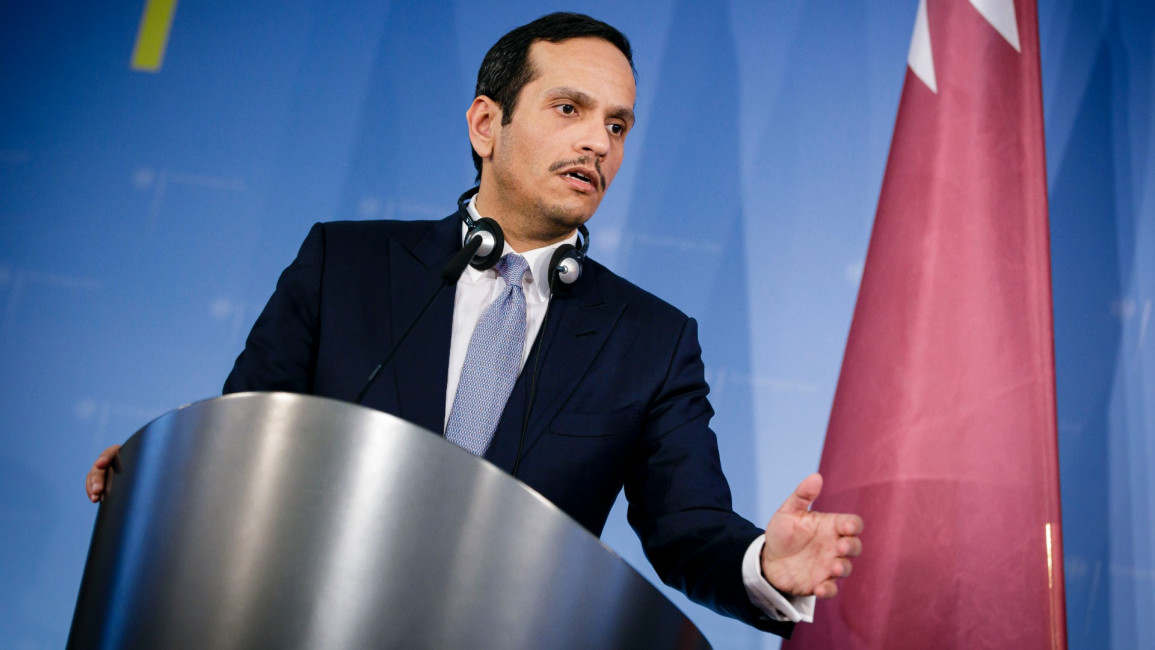Follow us on Facebook, Twitter and Instagram to stay connected
As Gulf states end rift, Qatar says it will not alter relations with Iran
Qatar's relations with Iran and Turkey will not be affected by Doha's recent reconciliation agreement with blockading states Saudi Arabia, the UAE, Bahrain, and Egypt, Doha's lead diplomat has said.
Foreign Minister Sheikh Mohammed bin Abdulrahman Al-Thani explained to The Financial Times that despite making some concessions in ending the rift, Qatar will maintain its independent foreign policy.
"Bilateral relationships are mainly driven by a sovereign decision of the country... [and] the national interest," he said in an interview with the financial daily.
"So there is no effect on our relationship with any other country."
The blockade of Qatar began on 5 June 2017, with the quartet accusing the Gulf state of sponsoring extremist groups and being too close to regional rival Iran. Doha strongly denied the claims.
The blockading countries also issued a list of demands, including the shuttering of a Turkish military base in Qatar and cutting ties with Iran.
Qatar's air, land and sea links with its neighbours were cut, forcing it to increase imports for food and medicine from Turkey, Oman and others.
Relations between Turkey and the UAE have been particularly bitter in recent years, while US tensions with Iran have been at a high.
Despite this, Abu Dhabi maintained relations with Iran during the rift with Qatar, including facilitating aid to Tehran during the recent Covid epidemic.
Saudi Arabia has also taken active steps to patch damaged relations with Turkey.
Although an agreement to end the Gulf rift was signed at Tuesday's Gulf Cooperation Council (GCC) meeting in Saudi Arabia, the minister said this will not affect Qatar's independent foreign policy and relations with friends in the region.
|
|
"Hopefully within a week from the signing things should take the steps to come back to normal," Sheikh Mohammed told the FT.
Abu Dhabi has been accused of being less enthusiastic with the agreement than Saudi Arabia, which hosted the talks, but on Thursday the UAE also agreed to normalise trade and travel ties within a week.
Sheikh Mohammed said that he hoped the other countries in the dispute "will have the same political will as the Saudis, and they will find Qatar has political will to engage".
"It will take some steps among the countries to rebuild the relationship... there will be differences, some outstanding issues that will be discussed bilaterally between the countries," he said.
"Each country has a different set of disagreements with Qatar."
The foreign minister said he hoped the resolution will lead to a resurgence in economic activity in the Gulf region and Qatar could be willing to invest in Saudi Arabia in the future.
"If there are opportunities that we see in the future, and we see a continuation of the political will of the countries to engage, we are very open," he told the financial daily, regarding Qatar Investment Authority's (QIA) possible future endeavours.
"The QIA is an investment fund that takes its decisions based on a commercial [basis] and the feasibility of the projects and I'm sure we have seen some ambitious plans in Saudi, and if we find opportunities over there, of course QIA will consider them."



